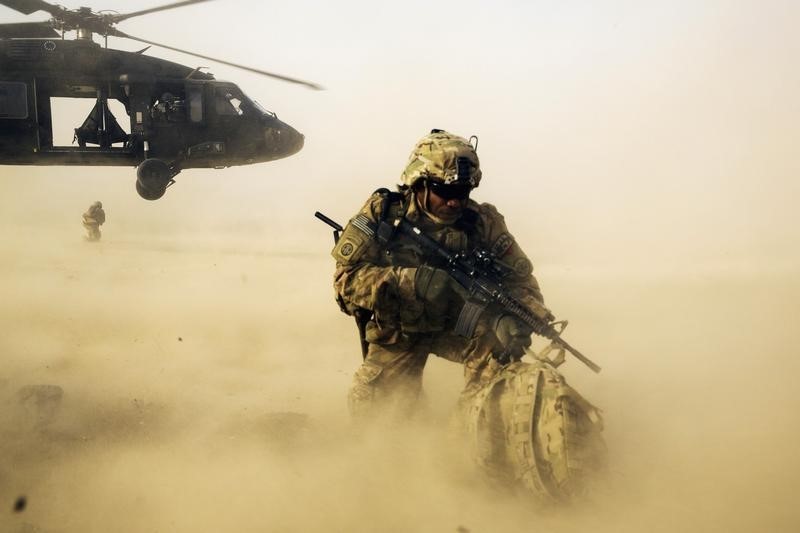Investing.com’s stocks of the week
By David Alexander
SAN DIEGO, Calif. (Reuters) - Deputy Defense Secretary Robert Work on Tuesday defended the Pentagon's decision to ask Congress for a 2016 budget that far exceeds federal spending caps, saying several years of cuts have hurt the military's ability to modernize to meet future threats.
"The stark reality is that the military modernization programs of our potential competitors are in hyper-drive," Work told a Navy convention. "We see nations, as well as non-state actors, developing capabilities that threaten the technological overmatch we rely on ... as we fight our nation's wars."
Work, the Pentagon's chief operating officer, said heavy use of U.S. forces overseas even as the department was being forced to cut spending in recent years had eroded the military's current readiness and limited its ability to invest in new technologies.
To address those shortcomings, Work said, President Barack Obama sent Congress a spending proposal for 2016 that calls for a Pentagon base budget of $534 billion, plus $51 billion in funding for wars overseas, mainly the conflict in Afghanistan.
The base budget would exceed federal spending caps by about $36 billion for the fiscal year beginning in October, a level Work said was needed to rebuild the U.S. military after 13 years of war and to fully implement the president's defense strategy, which calls for renewed focus on the Asia-Pacific region.
"The leaders of this department believe firmly that any reduction in funding below resource levels in this budget, or a broad denial of requested compensation and efficiency initiatives, submitted as part of this request, would make the overall risks to the strategy unmanageable," he said.
The budget request set up a debate in Congress over whether to continue deep cuts to federal discretionary spending or to amend the limits set in a 2011 law that sought to narrow the U.S. budget deficit. The caps required the Pentagon to reduce planned spending by nearly $1 trillion over a decade.
Work told the naval conference that even as the Pentagon dealt with shrinking budgets and the wars in Iraq and Afghanistan, larger potential rivals like Russia and China had been assessing U.S. military strengths and developing technologies to counter them.
He said in some areas Russia was investing at levels not seen since the peak of the Cold War in the mid-1980s, "modernizing a military that was once in steep decline."
China's defense budget, he said, had grown by about 500 percent between 2011 and 2016, with its military "rapidly fielding new weapons and systems."
